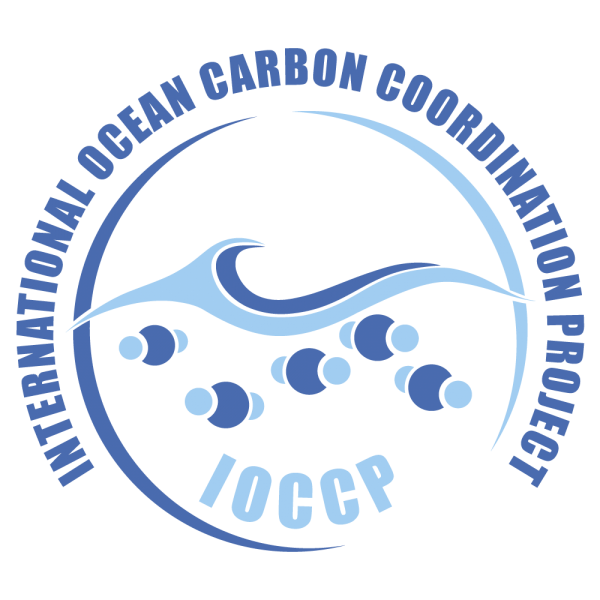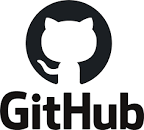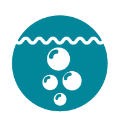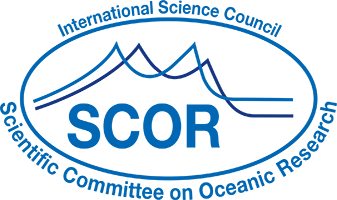News
+ more news
Applications for the SCOR-POGO Visiting Fellowship Programme 2020 are now open!
Friday, 28 February 2020
We would like to let you know that applications for the SCOR-POGO Visiting Fellowship Programme 2020 are now open. The SCOR-POGO Visiting Fellowship Programme provides funding to researchers, technicians, postgraduate students or post-doctoral fellows from developing countries or with economies in transition to spend between one and three months at another oceanographic institute, or to receive training. You can obtain more information from the flyer: https://scor-int.org/wp-content/uploads/2020/02/POGO-SCOR-fellowships-2020flyer.pdf
Deadline for application: 31 March 2020

Call for a new member of IOCCP Scientific Steering Group
Monday, 17 February 2020
IOCCP is looking for applications for a new member of the Scientific Steering Group (SSG) to act as a leader responsible for expanding IOCCP coordination activities within the themes of IOCCP: ‘Instruments and sensors’ and ‘Technical capacity development’, with the term starting in July 2020. You can view the complete call online below or as PDF in the ![]() attached.
attached.
Please send your applications by 3 April. Feel free to contact the IOCCP Office with any related questions you might have.

ScarFace – R Shiny user interface for seacarb calculations of seawater carbonate chemistry
Monday, 17 February 2020
‘ScarFace’ is a Shiny web application that has been developed to facilitate the usage of the R-package ‘seacarb’ (http://CRAN.R-project.org/package=seacarb) which is used to calculate the carbonate chemistry of seawater. ‘ScarFace’ enables to use ‘seacarb’ via an user interface (ui) without the need for digging into R. The web app implements the most frequently used functions bjerrum(), carb(), and errors(), which can be simply operated by numerical or slider inputs. In addition to single calculations, batch processing can be performed by uploading csv source tables, where there is no need for pre-defined column names or order. If required, propagated errors can be calculated based on source table or manually entered values.
Raitzsch, M. and Gattuso, J.-P., 2020. ScarFace – seacarb calculations with R Shiny user interface. https://doi.org/10.5281/zenodo.3662139. Also available on GitHub: https://github.com/martens73/ScarFace/tree/v1.0.1.

Report of the XIV Session of the IOCCP SSG & GOOS Biogeochemistry Panel
Friday, 14 February 2020
We are happy to inform you that the report from the XIV Session of the IOCCP Scientific Steering Group & Global Ocean Observing System Biogeochemistry Panel of Experts (IOCCP-SSG-14) has been published. You can read and download the report in PDF from our site HERE.
The report summarises the current status and future plans related to IOCCP's coordination activities for each of our themes. We hope that you will find the report informative and many of you will become involved in the activities that the SSG planned for the months to come. Please don't hesitate to contact us with any questions and comments.

Recommendations for plankton measurements on the GO-SHIP program with relevance to other sea-going expeditions
Thursday, 06 February 2020
We are happy to let you know about a new publication from SCOR WG 154 P-OBS (Integration of Plankton-Observing Sensor Systems to Existing Global Sampling Programs; https://scor-int.org/group/154/). In "Recommendations for plankton measurements on the GO-SHIP program with relevance to other sea-going expeditions" the authors present mature technologies to measure plankton activity as a combination of biomass and diversity indicators across the plankton size spectrum, and demonstrate their readiness to be deployed within the GO-SHIP constraints. The document provides a significant step towards enhancing capacity for open-ocean biological observations, and another milestone towards an integrated ocean observing system. The document is available from OBPS at: https://www.oceanbestpractices.net/handle/11329/1201. Please cite as follows:
SCOR Working Group 154 (2020). Recommendations for plankton measurements on the GO-SHIP program with relevance to other sea-going expeditions. SCOR Working Group 154 GO-SHIP Report. Scientific Committee on Oceanic Research, 70pp. DOI: http://dx.doi.org/10.25607/OBP-718
Marine carbonate system calculations with CO2SYS available in Python and Julia
Tuesday, 04 February 2020
Thanks to the work of Matthew Humphreys (NIOZ, the Netherlands), the marine carbonate system calculations with CO2SYS (original package written in MATLAB) are now available in the Python and Julia programming languages. You can download the code and access the full documentation from the respective GitHub repositories.
#Python: https://github.com/mvdh7/PyCO2SYS
#Julia: https://github.com/mvdh7/CO2System.jl

Abstract submission for ICOS Science Conference 2020 is open
Thursday, 30 January 2020
The Integrated Carbon Observation System (ICOS) invites researchers and scientists from around the world to submit abstracts for oral and poster presentation at the 4th ICOS Science Conference in Utrecht, the Netherlands, on 15-17 September 2020. The conference welcomes abstract submissions following the overall topic Knowledge for shaping the future – understanding our Earth's biogeochemical processes in 8 themes, several of which consider measurements in the ocean and at the interface with land and atmosphere. For a detailed description of the themes, and to submit your abstracts, visit https://www.icos-ri.eu/sc2020/themes.
The abstract submission closes on the 19th of April 2020 (midnight UTC+2).

2020 Call for SCOR WG proposals - due by 17 April
Tuesday, 28 January 2020
We would like to let you know that This email address is being protected from spambots. You need JavaScript enabled to view it. will accept proposals for new working groups from now until 17 April 2020. The guidelines, a template, and word limits are available at https://scor-int.org/work/groups/proposals/, including a PowerPoint presentation explaining the proposal process. Each proposal will be evaluated by national SCOR committees in terms of scientific merit and quality, timeliness, and achievability of the proposed terms of reference. National SCOR committees are an important aspect of SCOR’s operation and play a key role in reviewing working group proposals and in seeking new funds to support working group activities. In addition, the review of working group proposals is open worldwide to partner organizations and individuals who would like to provide comments.
The 2020 SCOR Annual Meeting will take place in Guayaquil, Ecuador on the week of the 19-23 of October 2020. Details about the meeting will be posted on the meeting website as they become available. Annual SCOR meetings are open, but anyone submitting a proposal or included in a proposed working group membership will be asked to leave the room when their proposal is discussed, to avoid any appearance of favoritism toward proposals that are represented at the meeting by a proponent. Please contact This email address is being protected from spambots. You need JavaScript enabled to view it. if you have any questions about the process for working group proposals.

Call for applications for NF-POGO Centre of Excellence 2020-2021
Monday, 13 January 2020
The application window is now open for the next Nippon Foundation-POGO Centre of Excellence (NF-POGO CofE), which provides world class education and training in the field of observational oceanography. This is an intensive training course for young professionals at the post-graduate level, ten months in duration, with an intake of ten trainees per year. The course is sponsored by the Nippon Foundation and hosted by the Alfred Wegener Institute for Polar and Marine Research. It is conducted at AWI’s site on the offshore island of Helgoland with focus on open-ocean sciences and also at AWI’s site on the UNESCO reserve Waddensea island of Sylt where shelf/basin interactions are topics of study.
The call for applications will be open until the 15 March 2020. Successful candidates will be informed by end of June 2020, with training scheduled to begin in the second half of October. You can read more about what the training involves and submit an application here: https://www.awi.de/en/about-us/sites/helgoland/visiting-scientists/centre-of-excellence-nf-pogo.html

IUCN report on "Ocean deoxygenation: Everyone's problem" & OceanObs'19 Community White Paper on VOICE
Thursday, 02 January 2020
We would like to draw your attention to the recent IUCN review report on "Ocean deoxygenation: Everyone's problem." This report is the largest peer-reviewed study so far into the causes, impacts and possible solutions to ocean deoxygenation. Ocean regions with low oxygen concentrations are expanding, with around 700 sites worldwide now affected by low oxygen conditions – up from only 45 in the 1960s. In the same period, the volume of anoxic waters – areas completely depleted of oxygen – in the global ocean has quadrupled, according to the report. The ocean is expected to lose 3–4% of its oxygen inventory globally by the year 2100 under a business-as-usual scenario, but the global average masks local changes that are predicted to be, for example, more severe in mid to high latitudes. Most of the losses are predicted to be concentrated in the upper 1000 m of the water column, which is richest in marine biodiversity. The full report and summary for policy makers are available from: https://www.iucn.org/theme/marine-and-polar/our-work/climate-change-and-oceans/ocean-deoxygenation
At the same time we would like to inform you about a related OceanObs'19 Community White Paper on "Multidisciplinary Observing in the World Ocean’s Oxygen Minimum Zone Regions: From Climate to Fish — The VOICE Initiative." The Variability of the Oxycline and its ImpaCt on the Ecosystem (VOICE; http://www.ioccp.org/voice) initiative, supported by IOCCP since its beginning in 2017, aims to demonstrate how societal benefits drive the need for integration and optimization of biological, biogeochemical, and physical components of regional ocean observing related to eastern boundary systems (EBSs). VOICE chose to focus on the upper oxycline (transition between high and low oxygen waters) which is fundamentally important for the ecosystem structure and can be a useful proxy for multiple observing objectives connected to EBSs that neighbour oxygen minimum zones. In this paper, we present a first readiness level assessment for ocean observing of the oxycline in EBS around the globe. The paper can be accessed openly and freely at: https://www.frontiersin.org/articles/10.3389/fmars.2019.00722/full
The IOCCP promotes the development of a global network of ocean carbon observations for research through technical coordination and communication services, international agreements on standards and methods, and advocacy and links to the global observing systems. The IOCCP is co-sponsored by the Scientific Committee on Oceanic Research and the Intergovernmental Oceanographic Commission of UNESCO. Read more…
Calendar
|
|
IOCCP meetings, IOCCP-related meetings as well as events related to a wider scope in marine biogeochemistry. |





 Please wait...
Please wait...